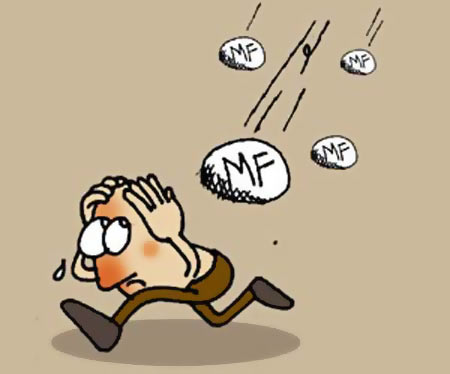 | « Back to article | Print this article |
Five ways to become a SMART MF investor
Follow these to see how you make more money out of your investments
1. I will make informed choices
Starting January 2013, mutual fund investors will have the option to invest directly with the fund company (i.e. bypass the distributor) through a separate plan. Market regulator SEBI has mandated that the aforementioned plan will have a lower expense ratio versus the conventional plan wherein investments are routed through a distributor.
It's time for investors to make an informed choice -- invest directly or engage the services of a distributor. The former option is best suited for investors who are equipped to conduct research to select the right funds, and also construct and manage a mutual fund portfolio. Conversely, for investors who choose to engage a distributor, it is important to find out more about his services i.e. how s/he makes recommendations, portfolio tracking and management tools offered, number of portfolio reviews and other terms of engagement. In any case, making an informed choice is important.
The author is senior research analyst at Morningstar India
Five ways to become a SMART MF investor
2. I will be resilient
While investing in market -- linked avenues, resilience is a trait investors must possess. There will be periods when markets run into rough weather and test the resolve of investors. That is the time to be resilient and not deviate from one's investment plans. For instance, if you are investing in equity funds and markets experience a downturn, don't hit the panic buttons and discontinue the systematic investment plan (SIP) investments. Indeed, that's the time when the benefits of an SIP kick in, by lowering the average purchase price. Conversely, when mutual funds that don't suit one's risk appetite emerge as the season's flavour, there is a need to be resilient to resist the temptation of investing in them.
Being conversant about investment avenues and their nuances can aid investors in becoming resilient. For instance, while investing in an equity mutual fund, it would help to have a long -- term investment horizon (at least five years), be aware of the potential downside (loss of capital) and an understanding of the scenarios wherein the fund is likely to be at its best and struggle to deliver. Simply put, being aware can make investors more resilient and in turn, better equipped to deal with testing conditions.
Five ways to become a SMART MF investor
3. I won't let noise influence my investments
It isn't uncommon for the media to carry reports on trends in mutual funds. Often, the discussion centers around how much assets a given category of mutual funds gained or lost, or which mutual fund segment was the best performer in the last month or quarter. Such articles are at best examples of data compilation.
However, investors run the risk of hurting their cause, if they treat the same as investment advice or base their investment decisions on such reports.
Simply because a story claims that investors have taken a liking to debt funds or have developed an aversion for equity funds, there is no reason for investors to follow suit. In the world of investments, one size doesn't fit all. Instead, investors would do well to block the noise and focus on their investment goals, plans and adhere to the same, irrespective of what the popular trend suggests.
Five ways to become a SMART MF investor
4. I won't be an 'autopilot' investor
Often mutual fund investors are guilty of investing in an autopilot mode i.e. not reviewing their investments at regular time intervals. While selecting the right fund is important, evaluating its aptness on a recurring basis is no less important. For instance, if the manager departs or the manager decides to ply a different investment strategy, it could result in a fundamental change in the fund's nature. In such a scenario, it is important to assess if the investor should continue to stay invested in the fund.
At times, the need to review the portfolio could be triggered by a change in the investor's investment objectives, risk profile or investment horizon. As a result, a fund that was apt for the investor in past may no longer be suitable or might be apt for a different role in the portfolio (core versus supporting). The importance of not being an autopilot investor cannot be overstated.
Five ways to become a SMART MF investor
5. I won't be swayed by fund companies' marketing spin
Fund companies can be quite fairly creative with their marketing spin in a bid to convince investors about a fund's prowess. Then, there are media -- savvy portfolio managers who preach that investors should be investing in their funds, irrespective of the scenario. For example, an upturn in markets is portrayed as a sign of future highs that markets will eventually sca#8804 conversely, a downturn is presented as an attractive opportunity to get invested.
On their part, investors need to be cautious. The onus of differentiating marketing spin from sound advice lies with investors. Investors must add funds to their portfolios based only on solid rationale. More importantly, the fund selected needs to be right for the investor i.e. suited to her/his risk profile and equipped to help her/him achieve her/his investment goals.





